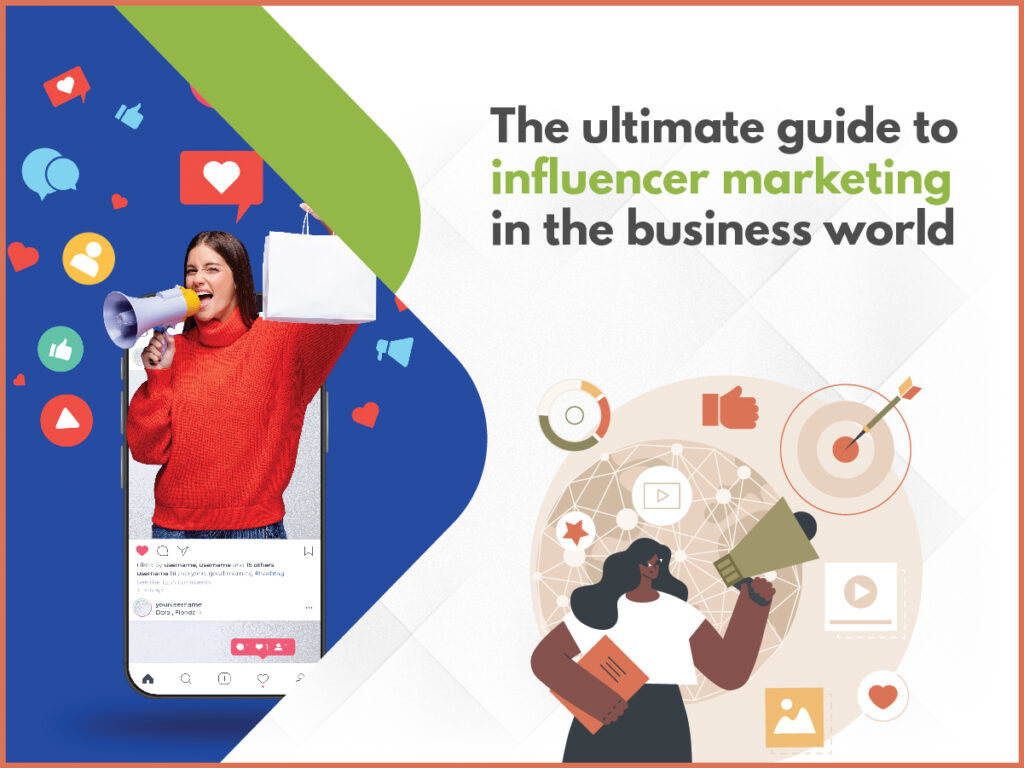
- Best practices that businesses should keep in mind to launch a successful influencer marketing
- How to Find the Right Influencer for Your Business
- Top Strategies for Building Strong Relationships with Influencers
- The Importance of Influencer Marketing in the Digital Age
- Influencer Marketing in B2B vs. B2C Industries: Key Differences
- How to Avoid Common Pitfalls in Influencer Marketing
- Key Influencer Marketing Tools and Platforms to Boost Your Strategy
- Conclusion
In today’s digital age, influencer marketing has become an increasingly powerful strategy for businesses looking to expand their reach and engage with their target audience. By leveraging the popularity and credibility of influential individuals in a particular niche or industry, businesses can effectively create brand awareness, drive sales, and establish their authority in the business world. In this ultimate guide to influencer marketing, we will delve into the world of influencer marketing in the business world, covering everything from finding the right influencers to avoiding common pitfalls and lots more.
Best practices that businesses should keep in mind to launch a successful influencer marketing campaign
- Understanding Influencer Marketing: Before diving into influencer marketing, it is crucial to understand the concept and its significance in the business world. Influencer marketing is a form of partnership where businesses collaborate with influential individuals (influencers) who have a loyal following and strong influence over their audience. These influencers can be industry experts, social media stars, bloggers, or celebrities who are trusted by their audience.
- Setting Clear Objectives: To ensure the success of your influencer marketing campaign, it is vital to establish clear goals and objectives right from the beginning. These objectives can include increasing brand awareness, driving website traffic, boosting sales, or enhancing brand credibility. Defining specific and measurable goals will help you track the progress and effectiveness of your campaign.
- Identifying the Right Influencers: Finding the right influencers for your business is a critical step in influencer marketing. Consider your target audience and industry niche when searching for influencers who align with your brand values and have a genuine connection with your target market. Look for influencers with high engagement rates, strong credibility, and a sizable following, as these attributes indicate their ability to effectively influence and engage with their followers.
- Building Authentic Relationships: Building authentic relationships with influencers is essential to ensure a successful partnership. It’s important to approach influencers with genuine interest and respect for their work. Engage with their content, share their posts, and provide value to them before asking for collaborations. By building a mutually beneficial relationship, you are more likely to secure their participation and dedication to promoting your brand.
- Crafting Compelling Campaigns: When collaborating with influencers, it is crucial to develop creative and engaging campaigns that align with both your brand and the influencer’s style. Ensure that your campaign provides value to the influencer’s audience and integrates your brand seamlessly. Whether it’s through product reviews, sponsored posts, giveaways, or interactive content, make sure the campaign resonates with the influencer’s audience and drives the desired action.
- Measuring and Analyzing Results: Once your influencer marketing campaign is live, it’s important to measure and analyze the results to understand its impact. Monitor key metrics such as engagement rates, impressions, reach, conversions, and revenue generated to gauge the campaign’s effectiveness. Utilize tracking tools and analytics platforms to evaluate the ROI and gather insights that can inform future campaigns and strategies.
- Staying Compliant and Transparent: Transparency is key in influencer marketing to maintain trust with your audience and adhere to ethical guidelines. Ensure that influencers clearly disclose their relationship with your brand, whether through hashtags, paid partnership labels, or captions. By following FTC guidelines and being transparent about the collaboration, you can maintain a positive brand image and build long-lasting relationships with your audience.
- Evolving with the Changing Landscape: The world of influencer marketing is constantly evolving, and it’s important to stay up-to-date with the latest trends and techniques. Continuously assess the performance of your campaigns, experiment with new strategies, and adapt to changes in the influencer landscape. By staying flexible and innovative, you can stay ahead of the competition and maximize the benefits of influencer marketing.
How to Find the Right Influencer for Your Business

The first step in any influencer marketing campaign is finding the right influencer for your business. Simply reaching out to just any influencer is not enough. You need to find an influencer who not only fits your business niche but also resonates with your brand.
Here are some tips on how to find the right influencer for your business:
- Research: Before reaching out to any influencer, it is important to do background research on their profile. This includes their social media handles, website, blog, and YouTube channels. You should pay particular attention to their followers, engagement levels, and the type of content they produce. You can use tools like BuzzSumo, Social Blade, and SEMrush to check their metrics and get insights into their online presence.
- Audience Demographics: Apart from metrics, it is important to consider the audience demographics of the influencer. You want to find an influencer whose audience matches your target market. For instance, if you are a company that sells toys for children, an influencer whose audience is primarily parents with young children would be a good fit.
- Authenticity: Also, it is important to ensure that the influencer is authentic and has a genuine connection with their audience. You can check this by going through their social media comments and reviews.
- Influencer Type: There are different types of influencers, each with their strengths and weaknesses. These include macro-influencers, micro-influencers, and celebrities. A macro-influencer has over 100k followers, while a micro-influencer has between 1k and 100k followers. Celebrities are the most popular influencers with millions of followers. Depending on your budget and goals, you can choose the type of influencer to work with.
Top Strategies for Building Strong Relationships with Influencers
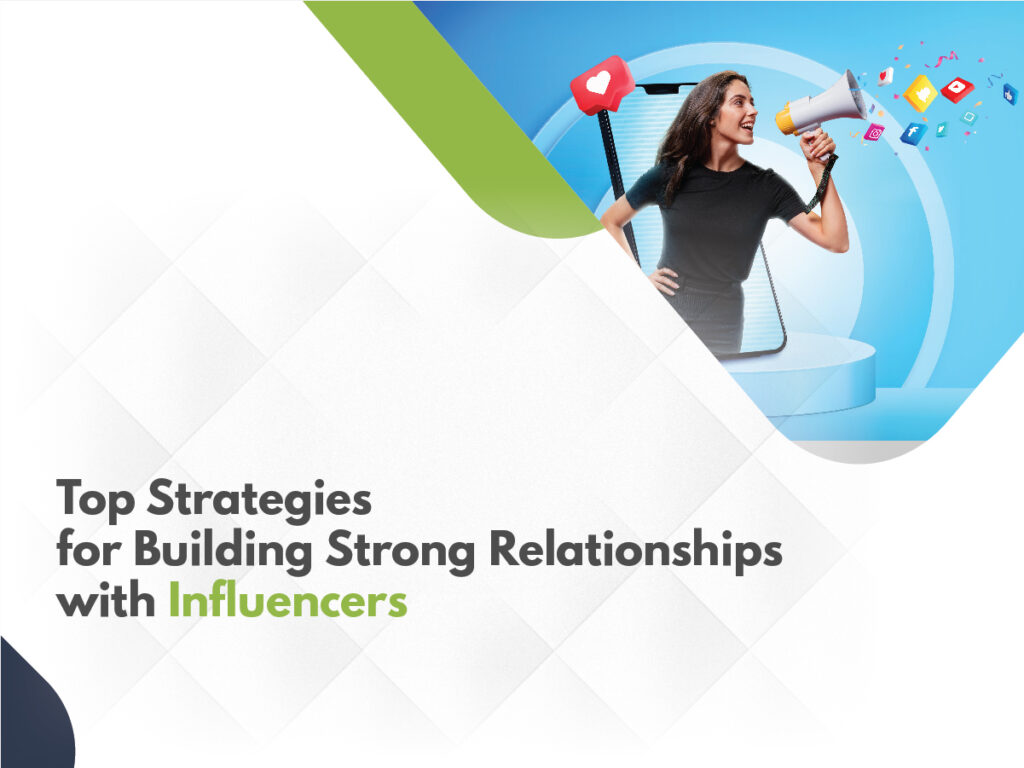
Once you have found the right influencer, the next step is to build a strong working relationship. Building a strong relationship with an influencer can be beneficial as it can lead to long-term collaborations and increased brand exposure.
Here are some strategies for building strong relationships with influencers:
- Personalize Your Outreach: When reaching out to an influencer, make sure to personalize your message. Avoid using generic scripts as they can come across as spam. Personalizing your outreach can help you stand out and increase your chances of getting a response.
- Offer Value: Influencers are often approached by many businesses, so it is important to offer value to them. You can offer them free products, access to exclusive events, or even pay them for their services. Offering value can help you build a mutually beneficial working relationship.
- Be Transparent: It is important to be transparent with influencers about your goals and expectations. This includes being clear about the type of content you want them to create and how you plan to compensate them. Transparency can help you build trust and avoid any misunderstandings.
- Collaborate on Content: Working collaboratively with an influencer on content can help you create more authentic and engaging content. This includes involving them in the content creation process, allowing them creative control, and promoting their content on your social media channels.
The Importance of Influencer Marketing in the Digital Age
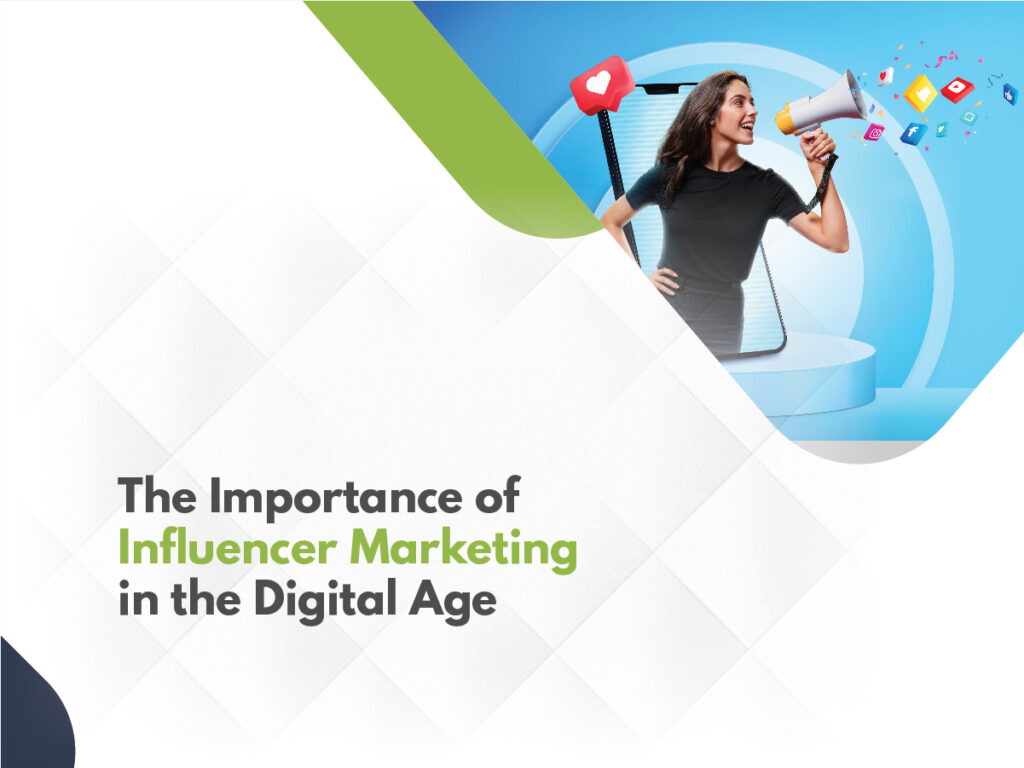
Influencer marketing has become increasingly important in the digital age due to the changing consumer behavior. Consumers now rely more on peer recommendations and social media than traditional advertising. Working with influencers can help brands create a more authentic and trustworthy brand image.
Here are some benefits of influencer marketing for your business:
- Building Credibility and Trust: In an era of information overload and skepticism towards traditional advertising, consumers seek authenticity. Influencers possess the ability to connect with their followers on a personal level, establishing credibility and trust that traditional advertising fails to achieve.
- Reaching Target Audiences: Influencers have built communities of engaged followers who share common interests or demographics. Collaborating with influencers allows businesses to tap into these highly-targeted audiences and increase brand exposure to their ideal customers.
- Enhancing Brand Awareness: By leveraging the reach and popularity of influencers, businesses can significantly boost their brand visibility. When influencers promote a product or service, their followers take notice, leading to increased brand awareness and potential customer acquisition.
- Driving Conversions: Influencers can serve as excellent brand advocates, persuading their followers to make purchasing decisions. Their recommendations and testimonials carry significant weight, resulting in increased conversions and sales for businesses.
- Gaining Social Proof: When influencers endorse a brand or product, it provides social proof to their followers. This validation often leads to increased trust and confidence, prompting followers to purchase or engage with the endorsed brand.
- Cost-Effective Marketing: Compared to traditional advertising methods, influencer marketing delivers a higher return on investment (ROI). By strategically partnering with influencers, businesses can achieve meaningful results without large advertising budgets.
Influencer Marketing in B2B vs. B2C Industries: Key Differences
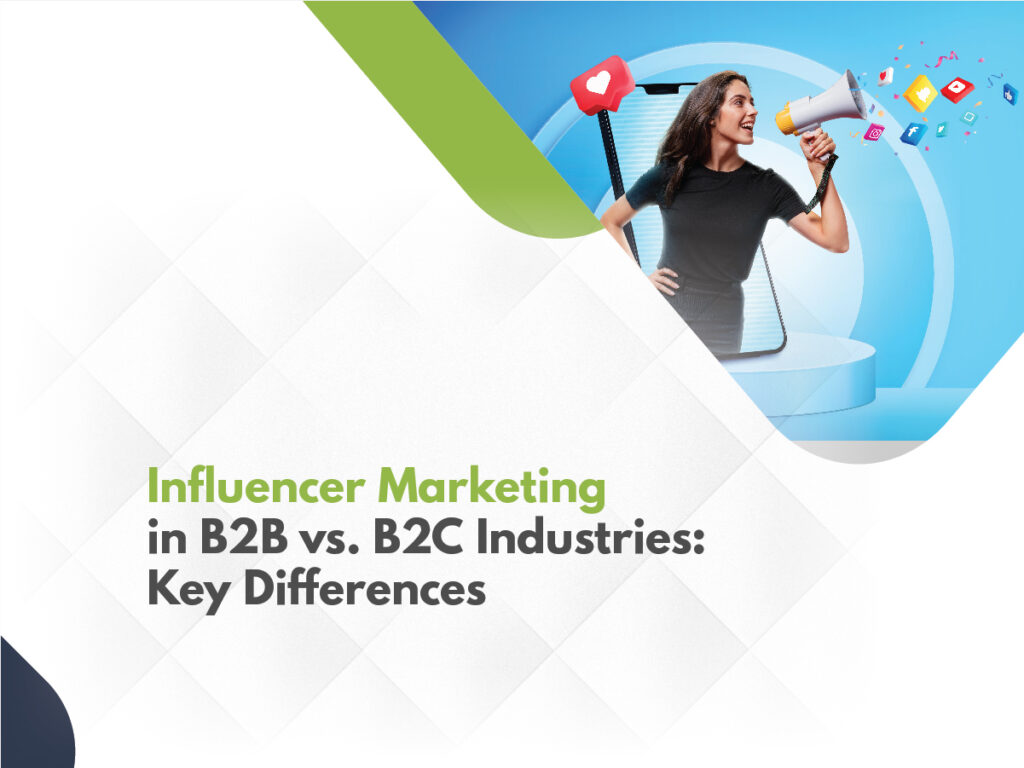
Influencer marketing strategies differ between B2B and B2C industries. B2B marketing tends to target specific business niches and professionals rather than mass-market consumers.
Here are some differences between influencer marketing in B2B and B2C industries:
- Research: In B2B marketing, research plays a more significant role since businesses target specific niches. Therefore, businesses must evaluate their potential influencers based on their experience and authority in their respective niches.
- Type of Content: B2B influencer marketing tends to focus more on educational content as it supports the decision-making process of a specific niche. On the other hand, B2C marketing tends to focus more on user-generated content.
- Approaches: B2B influencer marketing campaigns tend to be more personalized and involve longer-term collaboration. Conversely, B2C marketing often involves a one-off collaboration to promote a specific product or service.
How to Avoid Common Pitfalls in Influencer Marketing
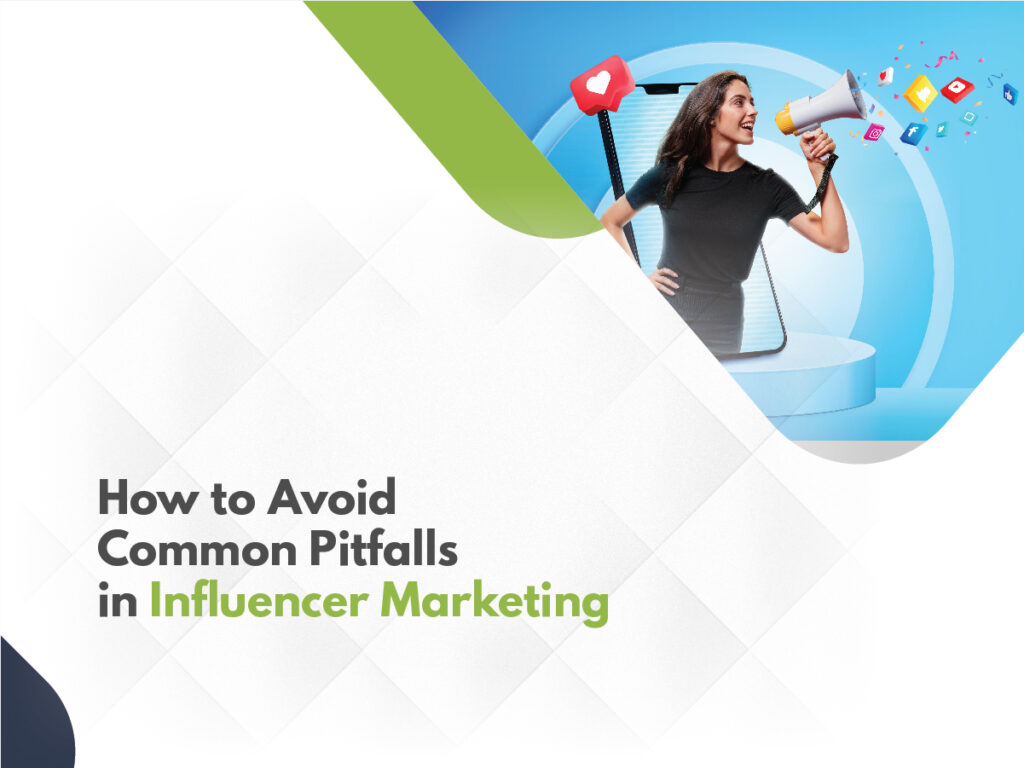
- Define Clear Goals and Objectives: Before embarking on an influencer marketing campaign, it is crucial to have a clear understanding of your objectives. Identifying specific goals will help in choosing the right influencers and measuring the success of your campaigns.
- Authenticity over Follower Count: While high follower counts can be tempting, it is important to prioritize authenticity when selecting influencers. Micro-influencers with smaller followings often have higher engagement rates and a more dedicated fan base, leading to higher conversion rates.
- Thoroughly Vet Influencers: Conduct thorough research on potential influencers to ensure alignment with your brand values, target audience, and industry. Look for consistency in content quality, engagement levels, and audience demographics before finalizing collaborations.
- Clear Communication and Expectations: Maintain open and transparent communication with influencers from the beginning to avoid miscommunication or misunderstandings. Clearly define campaign expectations, deliverables, timelines, and compensation to ensure both parties are on the same page.
- Audit Influencer Content: Regularly monitor and review the content shared by influencers to ensure it aligns with your brand messaging and guidelines. Set up guidelines for sponsored posts, disclosures, and FTC compliance to maintain transparency and trust.
- Track and Measure Results: Utilize tracking tools and analytics to monitor the success of influencer campaigns. Measure key performance indicators (KPIs) such as engagement rates, click-through rates, conversions, and return on investment (ROI) to evaluate the effectiveness and make data-driven decisions.
Key Influencer Marketing Tools and Platforms to Boost Your Strategy
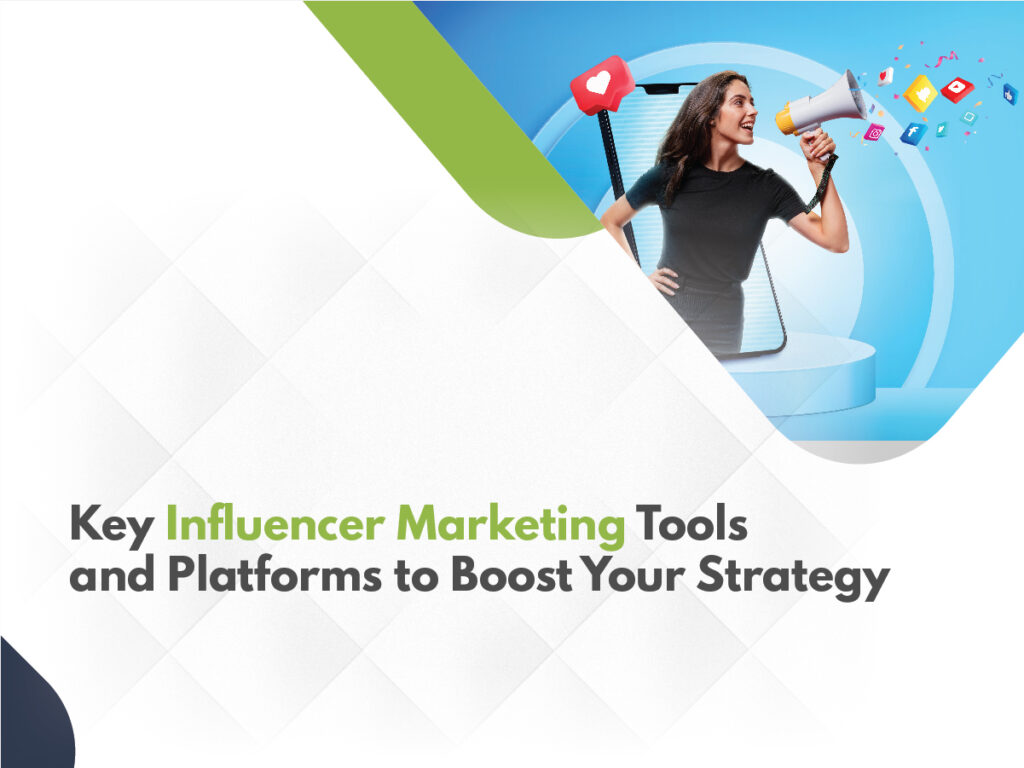
- Social Media Platforms: Instagram, YouTube, TikTok, and Twitter are popular platforms for influencer marketing. Each has its unique advantages and audience demographics, so choose platforms based on your target audience and campaign objectives.
- Influencer Marketing Platforms: Dedicated influencer marketing platforms like AspireIQ, Upfluence, and Grin connect businesses with influencers, streamlining the entire collaboration process. These platforms offer search filters, performance tracking, campaign management, and influencer discovery features.
- Analytics and Reporting Tools: Tools like Google Analytics, Sprout Social, and Iconosquare enable businesses to measure and analyze the success of their influencer campaigns. These tools provide detailed insights into engagement, traffic, conversions, and audience demographics.
- Content Creation and Scheduling Tools: Collaborative content creation platforms like Canva, Adobe Creative Cloud, and Buffer help businesses and influencers create aesthetically pleasing and engaging content. Scheduling tools like Hootsuite and Later allow efficient campaign planning and timely posting.
- Influencer Relationship Management (IRM) Tools: IRM tools like Traackr, Onalytica, and BuzzStream help businesses manage relationships with influencers, track collaborations, and monitor performance. These tools streamline communication, contract management, and influencer outreach processes.
Conclusion
Influencer marketing presents limitless opportunities for businesses to establish credibility, reach targeted audiences, enhance brand awareness, and drive conversions. Influencer marketing has become one of the key components of any successful marketing campaign. Finding the right influencer, leveraging the power of influencer marketing, and building a strong relationship with them are crucial steps for any business looking to achieve its marketing goals. By following the tips and strategies discussed in this guide, you can create a successful influencer marketing campaign that helps you reach new audiences and increase your brand exposure.



